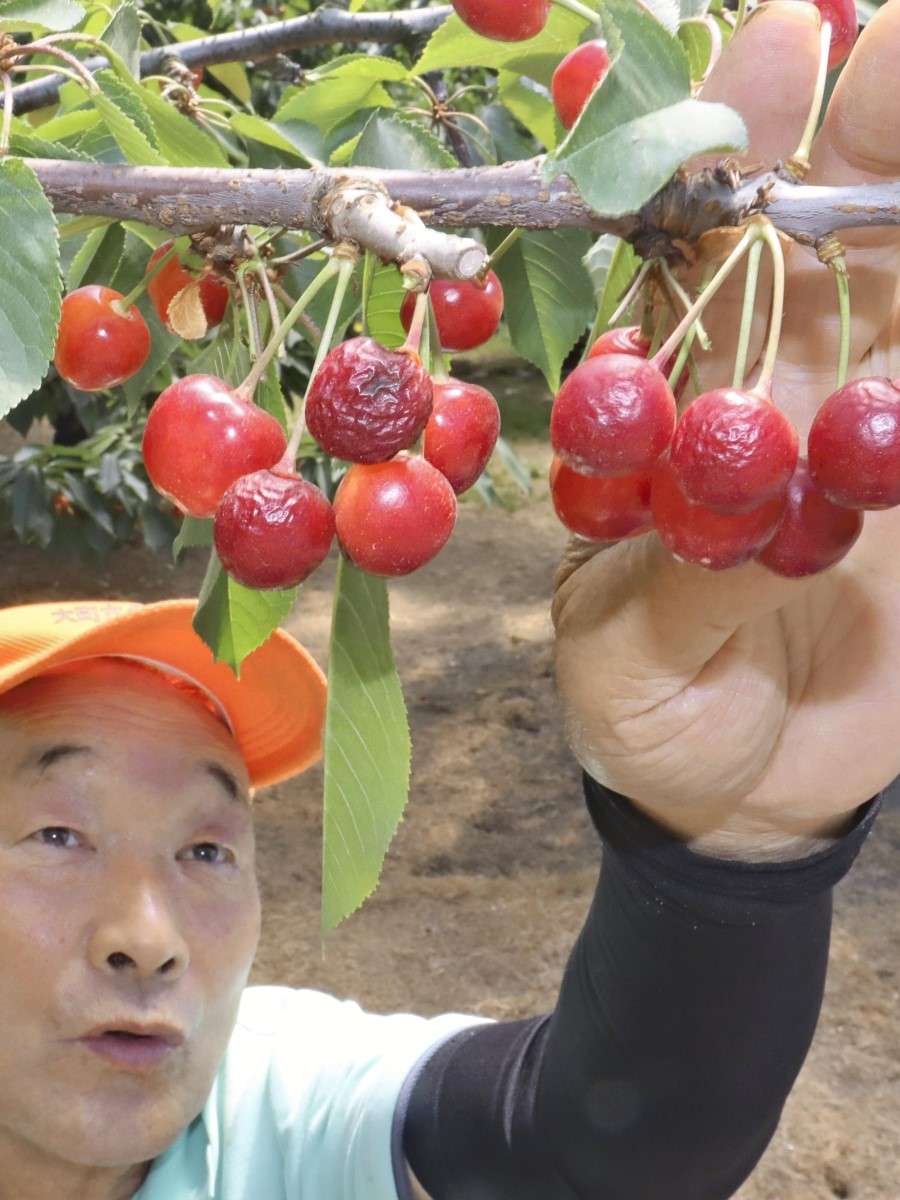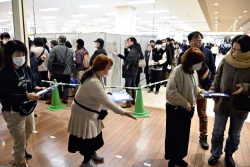Yamagata Pref.’s Cherry Harvest Nosedives Due to Heatwave; Prefecture Accounts for 70% of Japan’s Cherry Production

A farmer checks cherries for damage in Tendo, Yamagata Prefecture, on June 27.
13:43 JST, July 11, 2024
YAMAGATA — This year’s cherry harvest in Yamagata Prefecture, Japan’s largest producer of the small red fruit, has significantly decreased this season due to extremely high temperatures. Yamagata Prefecture accounts for over 70% of domestic cherries.
Though cherries have been popular gifts for the prefecture’s furusato nozei hometown tax donation system, there were over 70,000 orders not able to be fulfilled.
Omachi Sakuranbo-en, a cherry farm in Tendo, Yamagata Prefecture, manages around 1,500 cherry trees, mainly of the Sato Nishiki variety. Many of the farm’s cherries this year were too small or had damage to their skin.
“Although I have been growing cherries for over 50 years, this is the first time I have encountered such a situation,” said 72-year-old Akira Takeda, who heads the farm.
According to sources including the prefectural government, the temperature variation in late May was larger than in average years, causing the cherries to change color before they had sufficiently grown.
To compound this, the average temperature in June was 1.8 C higher than normal, causing the fruits to mature too early en masse. As a result, some cherries could not be harvested due to damage.
In a typical year, the cherry harvest lasts until early July. However, this year, most farms have already completed their harvest.
The prefectural government initially expected 12,000 tons of cherries to be harvested, but the volume is now forecast to be much lower.
The effects have been felt in the markets. Cherries are in short supply and trading prices of the fruit have been on the rise. As of June 24, the trade volume of cherries in the Tokyo Metropolitan Central Wholesale Market dropped to about 40% of that last season. As well, the average trading prices rose about 40%.
The furusato nozei system has also been adversely affected. According to Yamagata prefectural government data, as of late June, the prefecture and 18 municipal governments couldn’t send cherries as gifts to about 77,600 instances.
Local governments were forced to change the gift to other products such as Shine Muscat grapes.
The prefectural government plans to assist cherry farmers with costs and technical assistance.
Top Articles in Society
-

JAL, ANA Cancel Flights During 3-day Holiday Weekend due to Blizzard
-

Australian Woman Dies After Mishap on Ski Lift in Nagano Prefecture
-

Record-Breaking Snow Cripples Public Transport in Hokkaido; 7,000 People Stay Overnight at New Chitose Airport
-

Foreign Snowboarder in Serious Condition After Hanging in Midair from Chairlift in Nagano Prefecture
-

Train Services in Tokyo Resume Following Power Outage That Suspended Yamanote, Keihin-Tohoku Lines (Update 4)
JN ACCESS RANKING
-

Univ. in Japan, Tokyo-Based Startup to Develop Satellite for Disaster Prevention Measures, Bears
-

JAL, ANA Cancel Flights During 3-day Holiday Weekend due to Blizzard
-

China Confirmed to Be Operating Drilling Vessel Near Japan-China Median Line
-

China Eyes Rare Earth Foothold in Malaysia to Maintain Dominance, Counter Japan, U.S.
-

Japan Institute to Use Domestic Commercial Optical Lattice Clock to Set Japan Standard Time






















